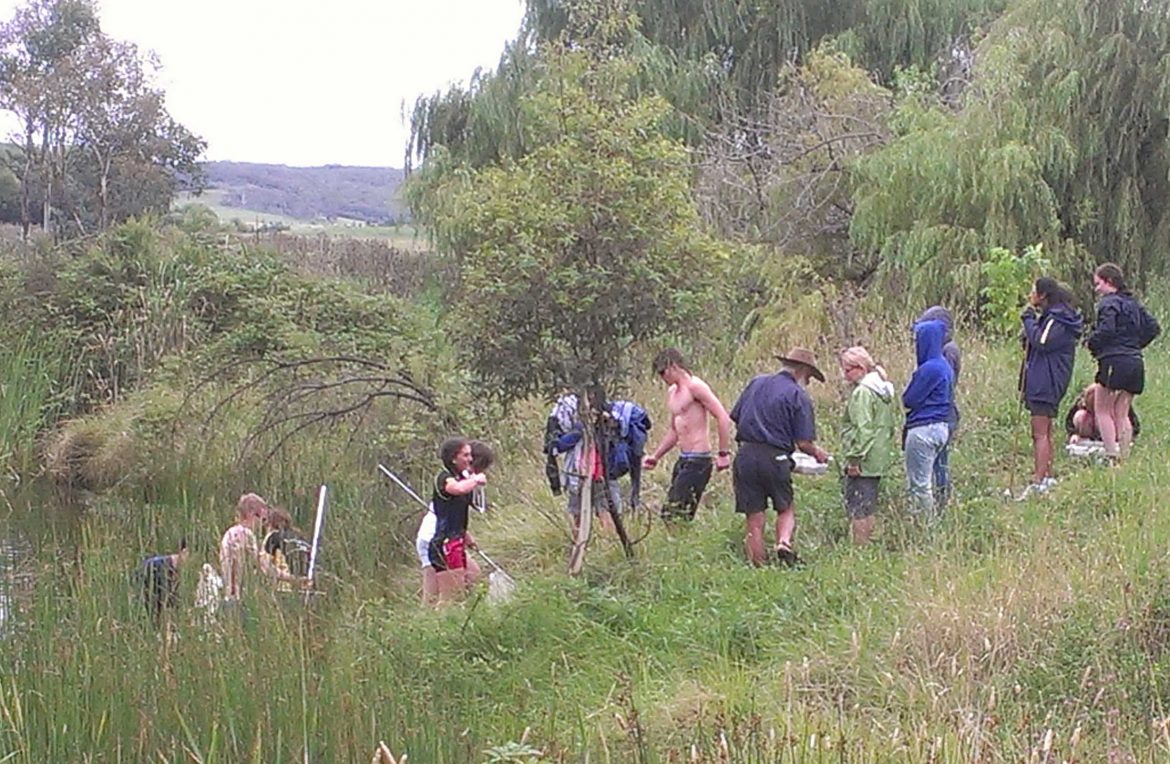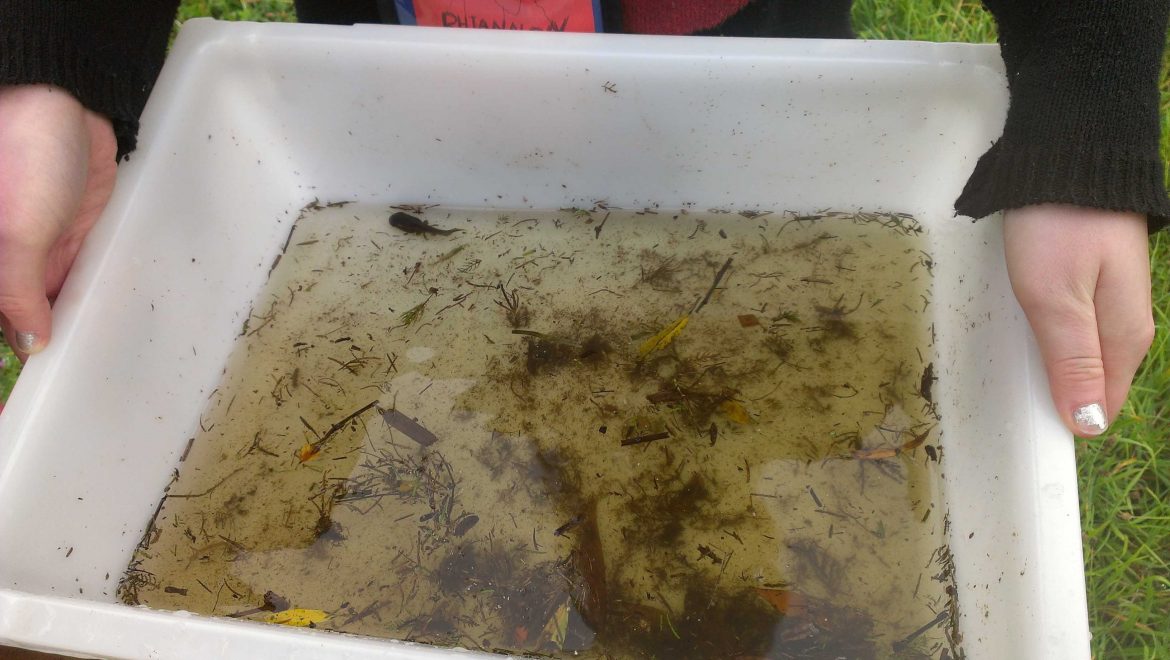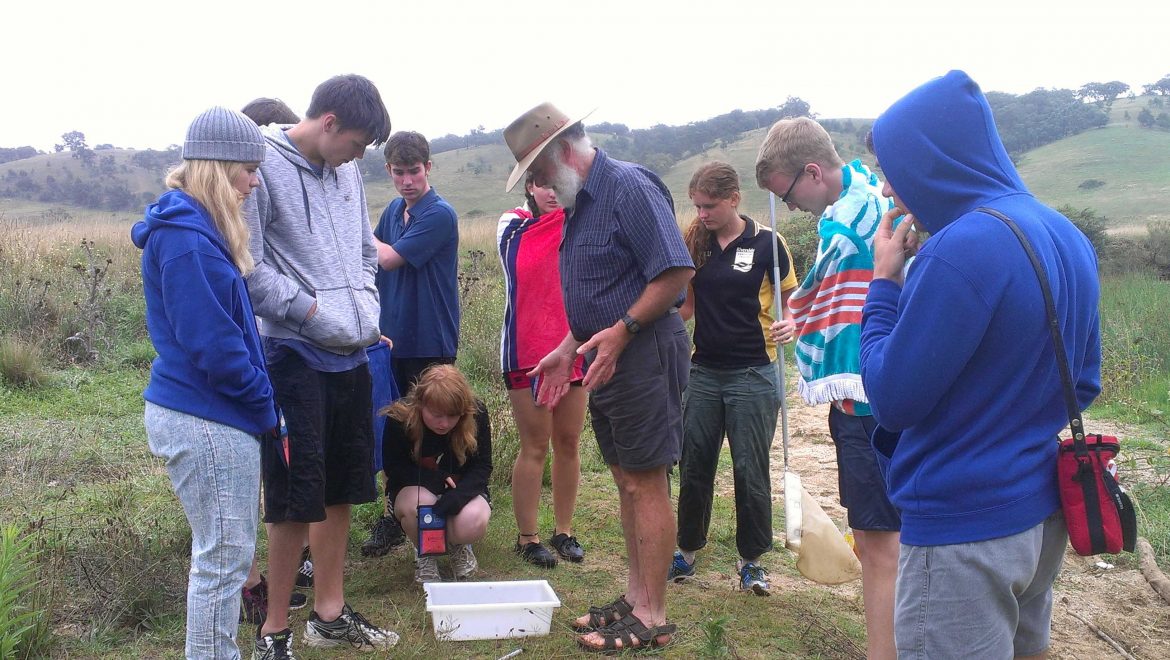Students interested in environmental land science at NYSF 2015 Session C visited long-time NYSF collaborator, The Mulloon Institute’s agricultural educational farm.
The Mulloon Institute is a not-for-profit independent charity that aims to make holistic landscape management a mainstream practice for sustainable and profitable agricultural businesses. The Institute cooperates in a number of areas with the Fenner School conducting long-term research and developing educational models to facilitate the widespread adaptation of sustainable holistic landscape management.




Dr John Field from the ANU's Fenner School with NYSF 2015 students at the Mulloon Institute (images Mulloon Institute)
The NYSF students gained first hand experience of the science behind best practice land management systems and an in depth understanding of landscape function in an intact environment.
Dr John Field, from ANU’s Fenner School of Environment and Society said, “Many of these students have no idea how they might apply their study of science at school, to some of the most important issues for Australia today – such as the continuum from healthy landscapes, through healthy soils to healthy plants and healthy animals including humans - and all in the context of sustainable agricultural production. There is nothing like being outside and amongst the agricultural system at Mulloon Institute, for them to begin to understand the science of an healthy food production system.”
Michael Thomes, Executive Director of the Mulloon Institute said, “It is very important that young leaders gain a real life experience of the benefits that a well functioning ecosystem can provide to biodiversity, sustainable agriculture and rural communities. The aim of The Mulloon Instititute is to educate the general public through sharing its knowledge – what better way to do that than inspiring these young scientists, with the potential to create change?”
“Visiting the Mulloon Institute is a unique experience for NYSF students hoping to study and move into careers in applied science such as sustainable agriculture and healthy food production,” said NYSF Director, Damien Pearce. “The Mulloon Institute’s contribution to education in restorative and sustainable agriculture is invaluable.”